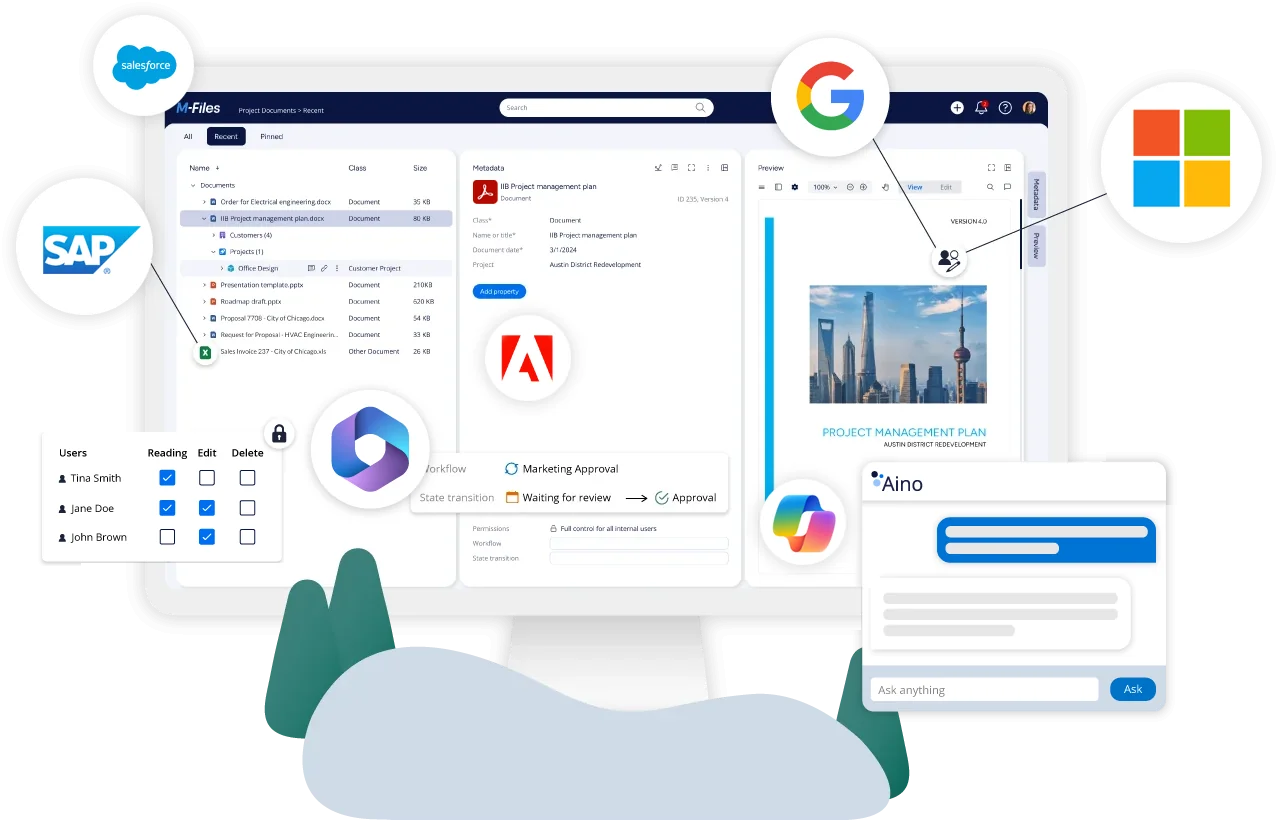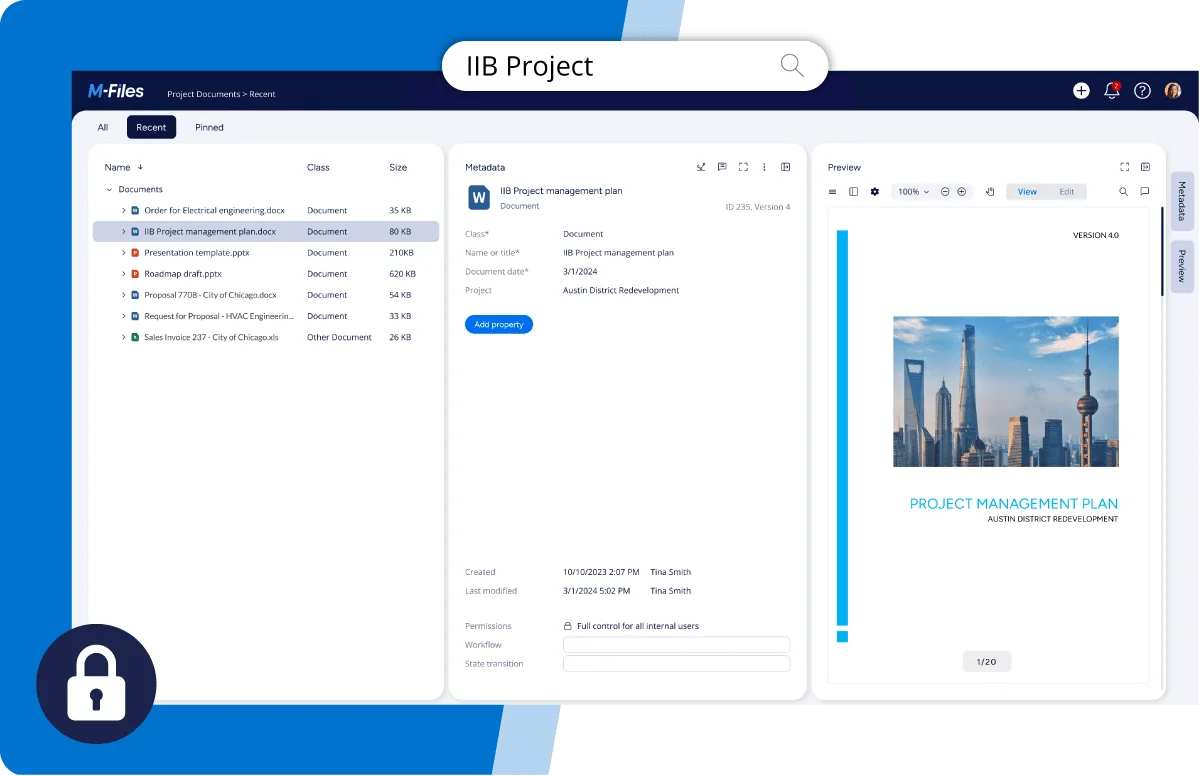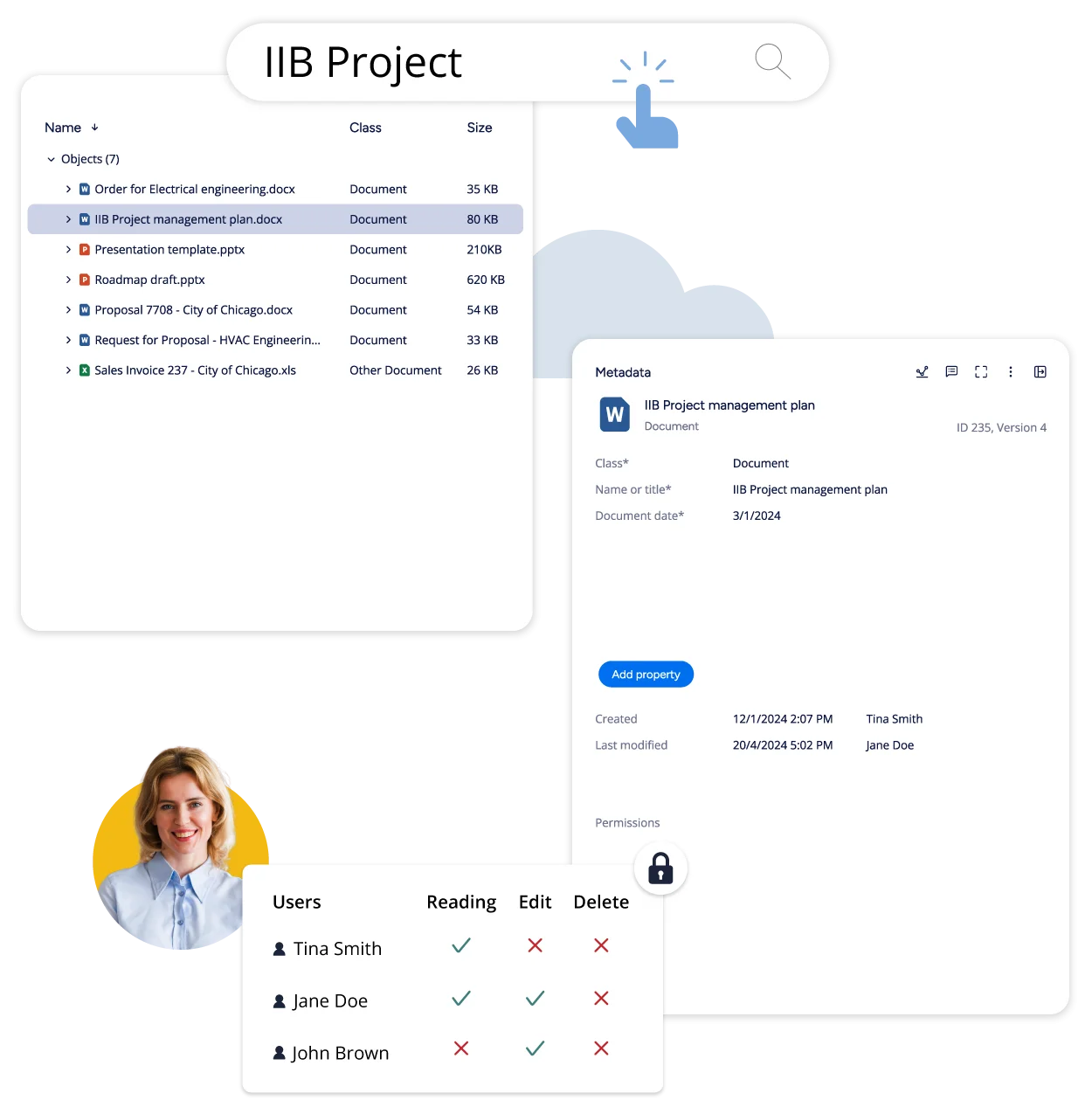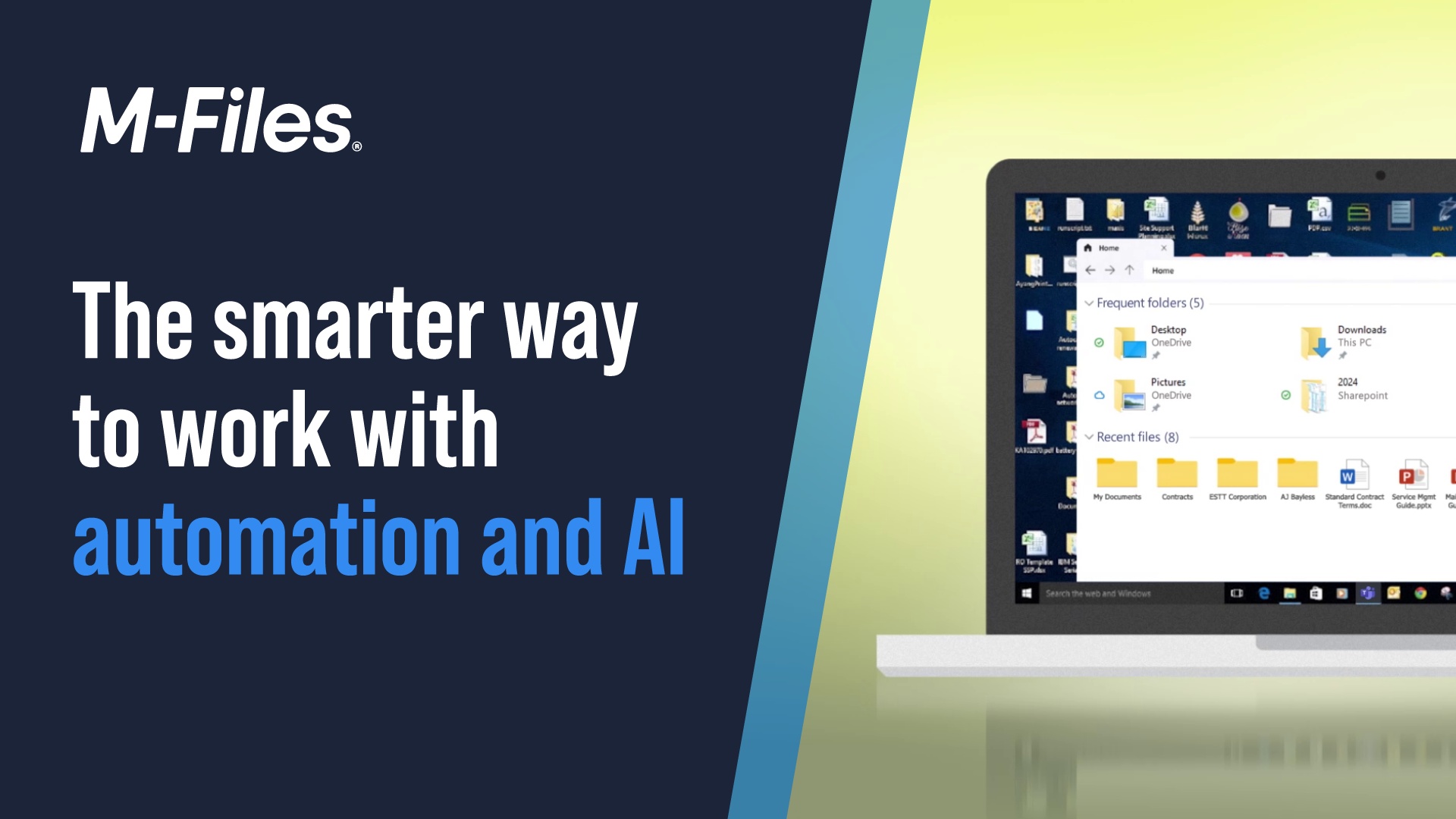Document Lifecycle
About Document Lifecycle
Let’s dive into the fascinating world of document lifecycles and how M-Files handles them.
Businesses’ performance today is driven by data and documents. From email and contracts to analytics reports and project plans, documents support the communication, collaboration and free flow of information that enables businesses to move forward.
As documents and digital information have taken a larger role in business, document lifecycle management has become increasingly important as well. A document lifecycle is the stages that a document goes through from creation and categorization to storage and sharing, to archiving or destruction.
Superior document management software can help companies manage the document lifecycle to extract greater value from documents, increase efficiency and productivity and reduce the cost of managing rapidly growing volumes of data. Your teams can automate pre-defined document management workflows and successfully manage your company's document lifecycle.


Access the Information You Need Instantly
From creation to disposal, see how M-Files provides a smarter way to manage documents, emails, and all your content.
Challenges of Document Lifecycle Management
Companies seeking to manage a document lifecycle more effectively face a number of critical challenges.
M-Files: A Smarter Way to Manage the Lifecycle of Information
M-Files uses artificial intelligence and machine learning to help companies manage, use, organize and secure documents more effectively. The M-Files intelligent information management platform simplifies document lifecycle management in several key ways.

Overview of M-Files Platform
M-Files is a document management platform designed to help knowledge workers automate their processes and work more efficiently. It offers a metadata-driven approach to document management, which means documents are organized based on their content and context rather than just their location. Key features include:
- Document Creation and Management: Streamlines the creation, storage, and retrieval of documents.
- Workflow Automation: Automates document-centric workflows, improving process efficiency and accuracy.
- External Collaboration: Facilitates secure sharing and collaboration with external partners.
- Enterprise Search: Provides powerful search capabilities to quickly find relevant documents.
- Security and Compliance: Ensures documents are managed in compliance with regulatory requirements and includes a comprehensive audit trail.
M-Files integrates with existing applications and file systems, making it easier for businesses to adopt and leverage its capabilities.
Automation: The Key to Document Lifecycle Management
Efficient document lifecycle management relies on automation, and M-Files offers best-of-breed technology to automate workflows.
Workflow automation in M-Files is based on metadata that specifies the document’s lifecycle and the status of each stage. With this information, M-Files automatically guides each document to the correct workflow stage, updating metadata as each phase is completed.
With M-Files, you can create custom workflows to suit specific needs and assign tasks to colleagues. M-Files will automatically follow up, issue notifications and alerts, and check to make sure that workflows are proceeding at the correct pace. Integration with common eSignature technology allows users to sign documents from anywhere using a mobile phone or tablet, enabling workflows to continue on time.


How Does It Compare to Other DMS for Managing the Document Lifecycle?
Managing the lifecycle of documents is crucial for business performance. In today’s data-driven landscape, documents play a pivotal role—from emails and contracts to analytics reports and project plans. The document lifecycle encompasses the various stages a document goes through, starting from creation and categorization, all the way to storage, sharing, and eventually archiving or destruction.
With the M-Files platform, knowledge workers can find information faster, work smarter, and achieve more. M-Files features an innovative metadata-driven architecture, embedded workflow engine, and advanced artificial intelligence. This enables customers to eliminate information chaos, improve process efficiency, and automate security and compliance.








